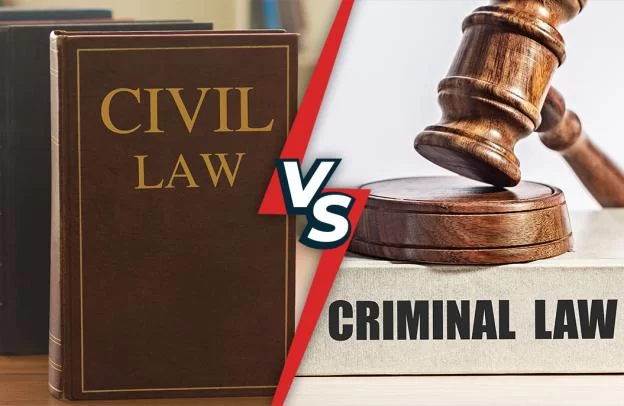
1. Fundamental Concepts of Civil and Criminal Law
Understanding the difference between civil and criminal law is essential for anyone navigating legal issues. Civil law deals primarily with disputes between individuals or organizations, typically involving rights, obligations, and remedies. In contrast, criminal law addresses offenses against the state or society as a whole, focusing on punishing wrongful conduct that threatens public order.
While both branches aim to maintain justice, their approaches, objectives, and consequences vary significantly. Recognizing these distinctions helps individuals respond appropriately when involved in legal situations.
What Constitutes Civil Law?
Civil law covers a wide range of issues such as contracts, property disputes, family matters like divorce and custody, and torts including negligence or defamation. The plaintiff, usually an individual or entity, seeks compensation or specific performance rather than punishment.
Essentials of Criminal Law
Criminal law governs actions deemed harmful to society, such as theft, assault, or murder. The government prosecutes offenders to uphold law and order, often resulting in penalties like imprisonment, fines, or community service.
2. Key Differences Between Civil and Criminal Law
Several critical factors differentiate civil and criminal law beyond their basic definitions.
Parties Involved
Civil cases are disputes between private parties, whereas criminal cases involve the state prosecuting an accused individual.
Burden of Proof
In criminal cases, the prosecution must prove guilt “beyond a reasonable doubt,” a higher standard due to the serious consequences. Civil cases require proof by a “preponderance of evidence,” meaning it is more likely than not that the claim is true.
Outcomes and Penalties
Civil cases usually end with monetary compensation or orders to act or refrain from acting. Criminal cases can lead to incarceration, probation, or fines aimed at deterrence and societal protection.
3. Examples and Real-Life Cases
Consider the example of a car accident. A civil case may arise if one party sues for damages caused by negligence. Separately, a criminal case might occur if reckless driving endangered lives.
Famous cases like O.J. Simpson’s trial illustrate this duality where he was acquitted criminally but found liable civilly. This underscores how the two legal systems operate independently with different standards and objectives.
4. Procedures and Burden of Proof
Understanding procedural differences is crucial. Criminal trials involve arraignment, plea bargains, and jury verdicts, while civil trials focus on claims, defenses, and settlements. The higher burden of proof in criminal law protects defendants from wrongful punishment, reflecting the severe nature of potential penalties.
5. Importance of Legal Guidance in Civil and Criminal Matters
Legal complexities in both civil and criminal cases demand expert advice. Misunderstanding the nuances can lead to unfavorable outcomes or missed opportunities for resolution.
Seeking counsel from experienced professionals ensures your rights are protected and strategies are well-planned according to the nature of your case.
6. How ESPLawyers Can Assist You
Whether you face civil disputes or criminal charges, ESPLawyers provides expert legal support tailored to your unique circumstances. Their deep understanding of the differences between civil and criminal law allows them to guide clients through procedural intricacies and advocate effectively.
By consulting ESPLawyers, you gain access to personalized advice, representation, and resources designed to help you navigate your legal journey with confidence and clarity.








